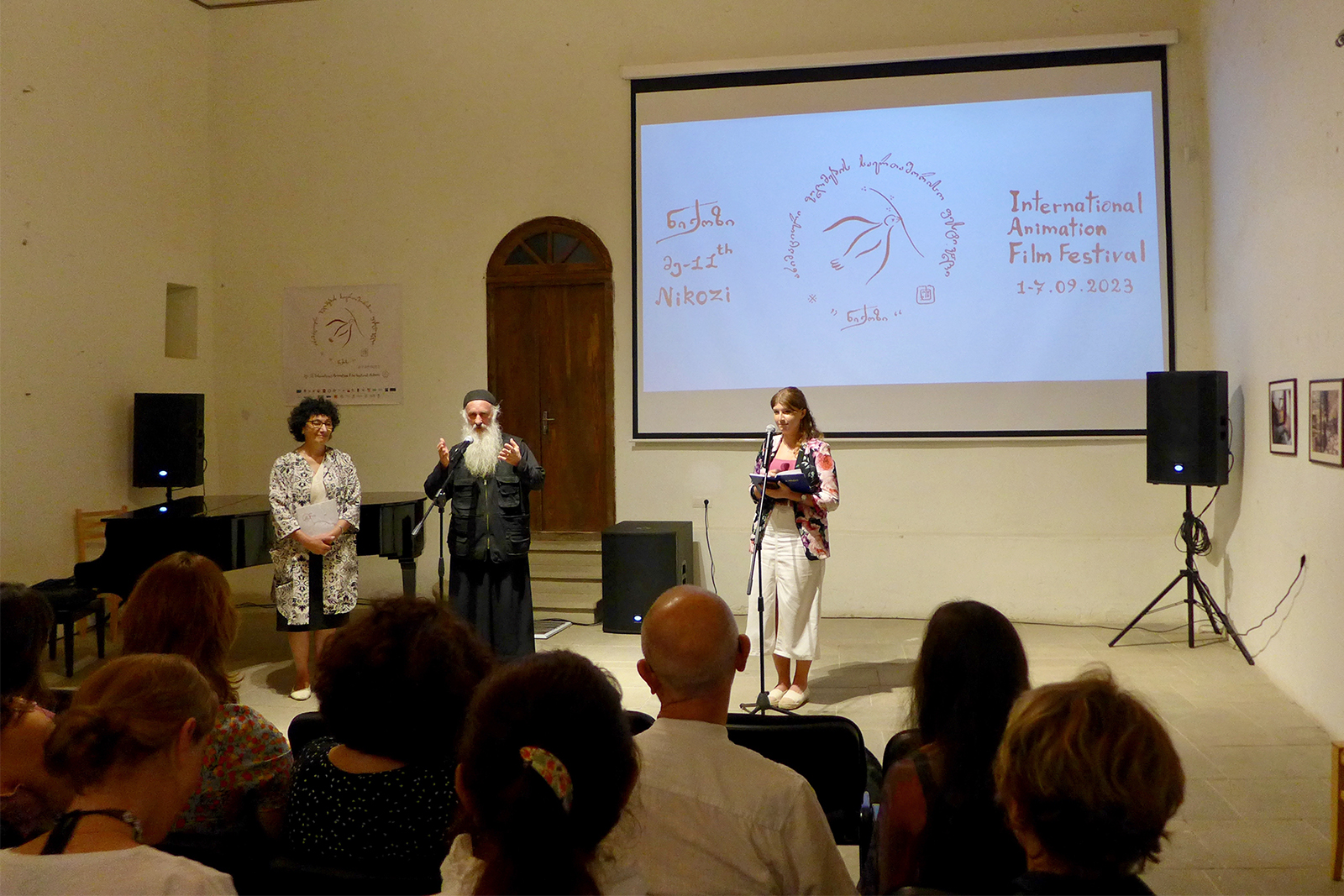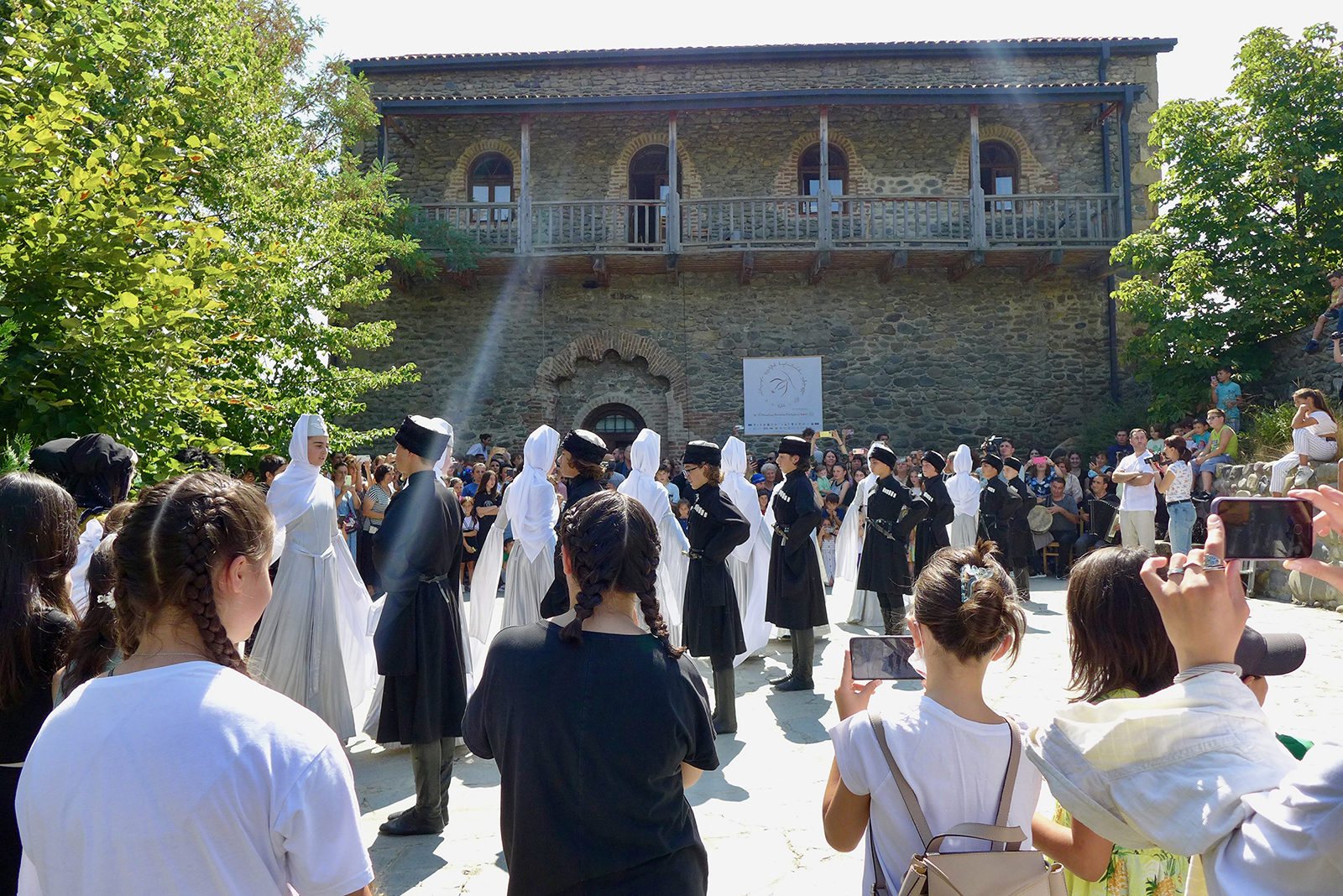(RNS) — Early in the afternoon on the first day of September, adults and children strolled along the streets of Nikozi, a historic village in central Georgia that is home to some of the country’s oldest Christian churches. The pedestrians converged on a courtyard where a band was playing Georgian folk music, followed nearby by a hand shadow puppet show and a demonstration of Georgian folk dance.
After the obligatory speeches from local officials, the crowd quieted to listen to Bishop Isaiah, the spiritual leader of the Eparchy — akin to a diocese — of Nikozi and Tskhinvali.
The occasion was not a church service or even particularly religious. The bishop’s address was the official kickoff for the Nikozi International Animation Film Festival.
The bishop, a fan of animated film, came up with the idea of the festival in 2011. “I thought, every similar festival is either in a big city or a seaside resort. Why can’t we make it in a village like ours?” Isaiah told Religion News Service.

After the screening of his documentary movie, Bishop Isaiah introduces upcoming activities during the Nikozi International Animation Film Festival on Sept. 1, 2023, in Nikozi, Georgia. On the right, Eter Glurjidze translates from Georgian to English. Photo by Clément Girardot
The truth is, there are not many villages like Nikozi. It is situated close to Tskhinvali, the capital of the de facto Republic of South Ossetia, the erstwhile autonomous region of Georgia that broke away in 1991 after Tbilisi declared its independence from the U.S.S.R.
When war broke out between Russia and Georgia in 2008, the bishop’s jurisdiction was cut in half. Travel between Nikozi and Tskhinvali became impossible as Russian soldiers stationed in Tskhinvali erected barbed wire fences marking a new effective “border” between South Ossetia and the independent state of Georgia. Walls in Nikozi are still pockmarked with bullet holes.
Besides his fondness for film, Bishop Isaiah started the film festival to give Nikozi new life. A free art school he founded in 2009, as an uneasy peace had been established, convinced some parents not to move away. The films in the festival literally appear against the backdrop of the complex geopolitical situation in the Caucasus: The building hosting the screenings was bombed and partly destroyed during the 2008 war.

Young Georgian folk dancers from the Nikozi art school perform in front of the Episcopal Palace of the Nikozi Monastery on Sept. 1, 2023, in Nikozi, Georgia. Photo by Clément Girardot
But the festival, though small — several hundred people attended this year — is more than a symbol of peace. The largest animated film event in Georgia, it saw more than 100 animation films screened in the first days of September, including work from several European countries, as well as Japan, the USA and Iran, thanks to partnerships with foreign embassies, animation film institutions and festivals around the world.
“The love and dedication to animation keep living in me. I think it is the field where you can build bridges between people and cultures,” said Bishop Isaiah, who is 62. He was inclined toward the arts from a very young age. In the 1980s he studied animation and worked with renowned director Gela Kandelaki.
But in the early 1990s, Isaiah’s plans to pursue film studies abroad were complicated by Georgia’s declaration of independence from the former U.S.S.R, which began a series of political upheaval, armed conflicts and a profound economic recession.
“If events in our country had unfolded differently, it’s quite likely I would have remained in my favorite field,” said Bishop Isaiah. But after seven decades of repression under communist rule, the Georgian Orthodox Church faced a shortage of priests and higher-ranking clerics. Isaiah felt the pull and he took his ordination vows in 1993, officially became a monk in 1994 and assumed the position of an eparch in 1995.

